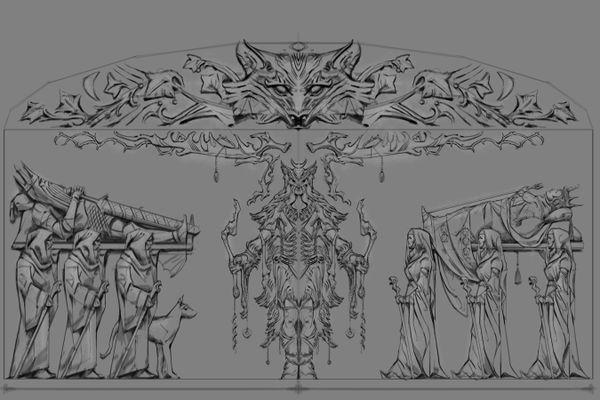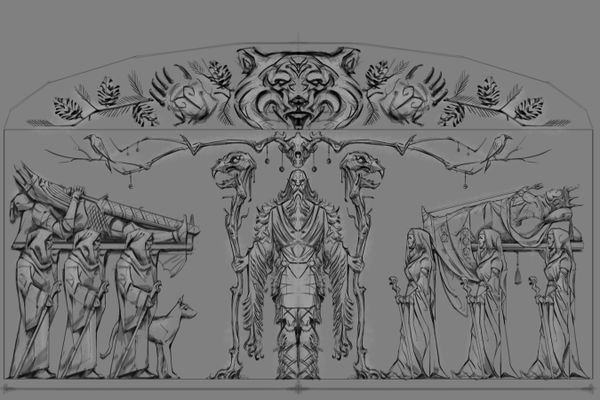| Book Information | |||
|---|---|---|---|
| Source: | Tumblr, Reddit | ||
| Archived Link: | The Imperial Library | ||
| Writer(s): | Michael Kirkbride | ||
| Publication Date: | 7 September 2015 | ||
An excerpt of this text was featured in The Elder Scrolls V: Skyrim: Prima Official Game Guide. Other parts were posted by Kirkbride on Reddit on 9 March 2014 (archived here), described as "some internal notes that never saw the light of day". The full text was later posted by Kirkbride to his Tumblr blog with the description "Excerpt from a TESV: Skyrim design document, with slight changes for wording".
This document does not feature Stuhn or Jhunal, despite both of them having murals featured in Skyrim (Whale Mural and Owl Mural). Although they are absent, both named as Hearth Gods in Divines and the Nords from The Elder Scrolls Online, which would later feature much of the information from this document.
The gods are cyclical, just like the world is. There are the Dead Gods, who fought and died to bring about the new cycle; the Hearth Gods, who watch over the present cycle; the Testing Gods, who threaten the Hearth and thus are watched; and the Twilight Gods, who usher in the next cycle. The end of a cycle is said to be preceded by the Dragonborn God, a god that did not exist in the previous cycle but whose presence means that the current one is almost over.
The Dead Gods
Dead Gods don't need temples. They have the biggest one of all, Svongarde [sic]. Nord heroes and clever men visit the Underworld all the time. They bear a symbol to show that they have, which garners much respect.
The Hearth Gods
The Hearth Gods have temples appropriate to their nature: Kyne's are built on peaks, Mara's are the halls of important Witches, Dibella's are the halls of important Wives– the temples aren't like those of the Imperials; as Hearth Gods, they are always homes to someone, and the highest-ranking female of that home is their de facto high priestess.
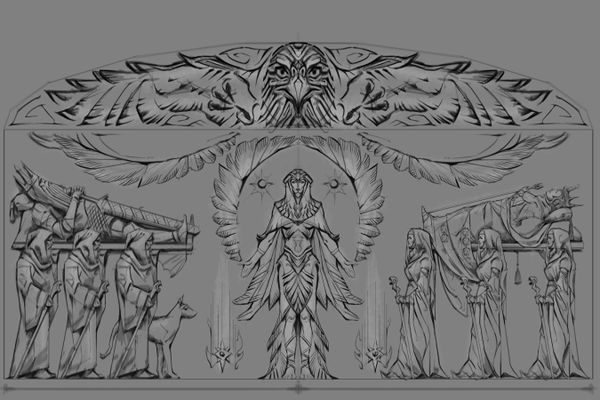
The Hawk, Kyne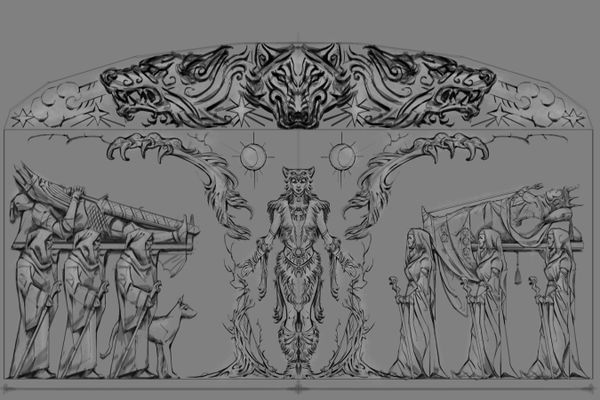
The Wolf, Mara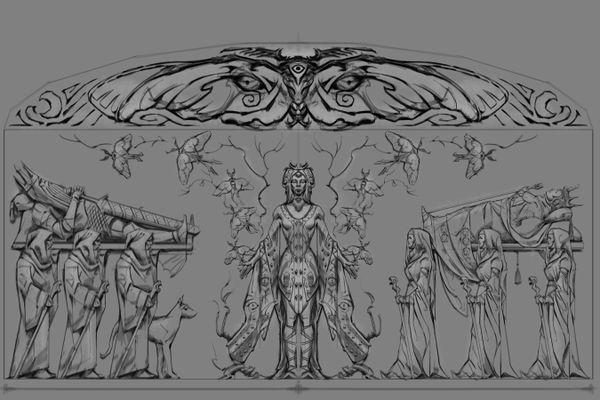
The Moth, Dibella
The Testing Gods
The Testing Gods don't really have temples – they are propitiated at battlegrounds or other sites where they caused some notable trouble. Nords understand that the Daedric Temples are something else entirely and think them as much of a waste of time as the formalized religion of the Nine Divines of Cyrodiil.
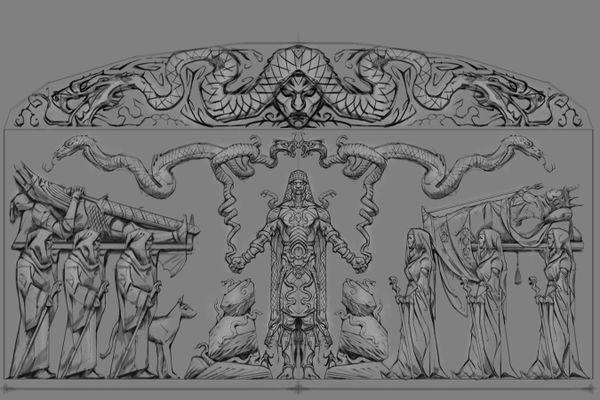
The Snake, Orkey
The Woodland Man, Herma Mora
The Twilight Gods
The Twilight Gods need no temples– when they show up, there won't be any reason to build them, much less use them – another waste of time. That said, Nords do venerate them, as they always venerate the cycles of things, and especially the Last War where they will show their final, best worth.
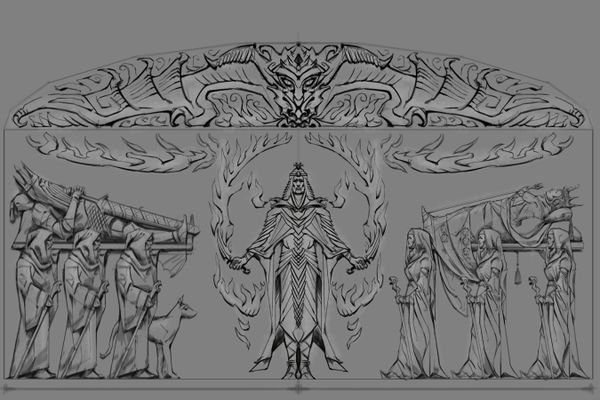
The Dragon, Alduin
Alduin is venerated on the winter solstice by ceremonies at ancient Dragon Cult temples, where offerings are made to keep him asleep for one more year. Alduin is also the source of many common superstitious practices before any event of significance.
The Dragonborn God, Talos
Talos' totem is the newest, but is everywhere – he is the Dragonborn Conquering Son, the first new god of this cycle, whose power is consequently unknown, so the Nords bless nearly everything with his totem, since he might very well be the god of it now, too. Yes, as first of the Twilight Gods, this practice might seem contradictory, but that's only because, of all the gods, he will be the one that survives in whole into the next cycle.
Nord view of Imperial Religion
The Eight Divines are viewed by the Nords as a "Southern" import. They retain some of the taint of the Alessian Order, and are basically viewed as a religion for foreigners. Their gods are fine for them, but Nords need Nord gods.
Some of the gods are the same (or similar) – significantly these are the three female gods, which are far more important to the Nords than they are in the Imperial Cult. (Kyne is in fact the de facto head of the Nord pantheon.) The Nords are perplexed and disturbed by the Imperial Cult's focus on the Dragon God – they regard this as a fundamental misunderstanding of the universe, and one likely to cause disaster in the end. (Which fits perfectly with the pessimistic Nord view of the world in general – things are likely to turn out badly, and it will probably be caused by some foreigner.) Lucky for the world that the Nords are so diligent about keeping Alduin asleep, while the southerners are busy trying to get his attention! Any mention of Akatosh in a Nord's presence is likely to bring a muttered invocation to Alduin to stay asleep in response.
The Nords believe that, During the Oblivion Crisis, it was Talos (Dragonborn, Martin's forefather) lending his aid, not Alduin.
